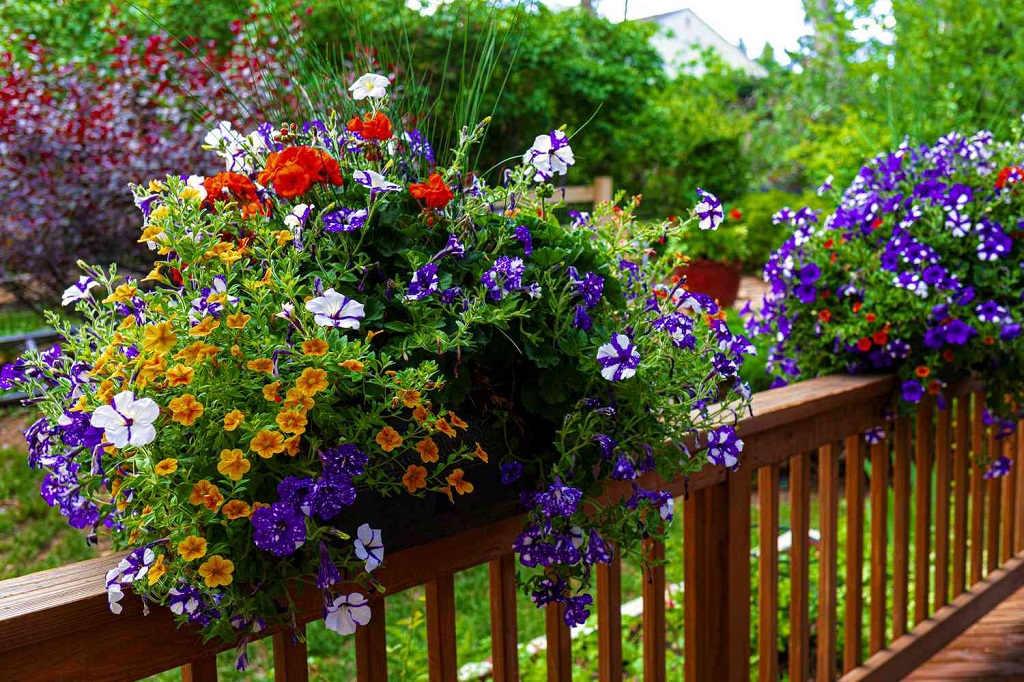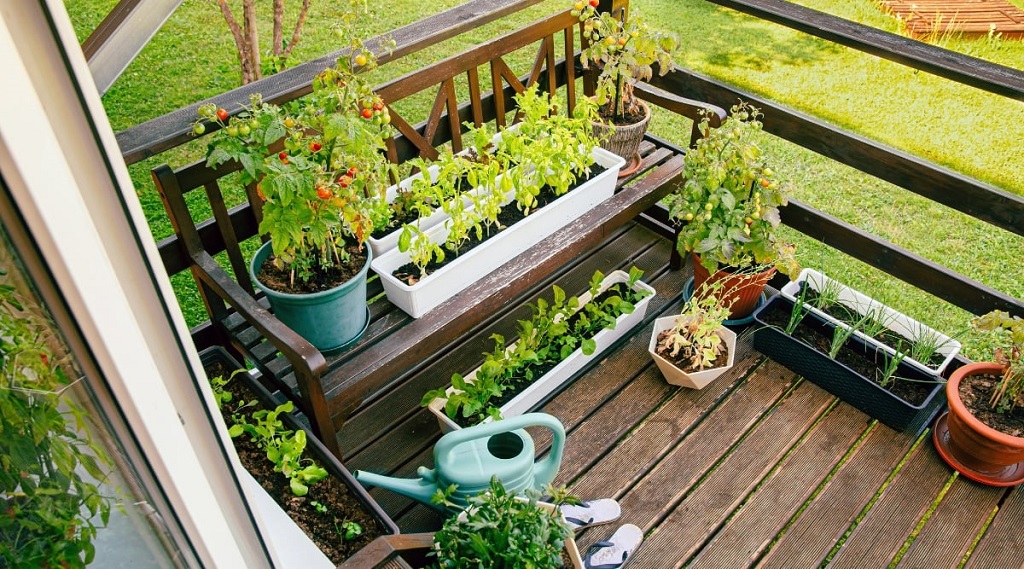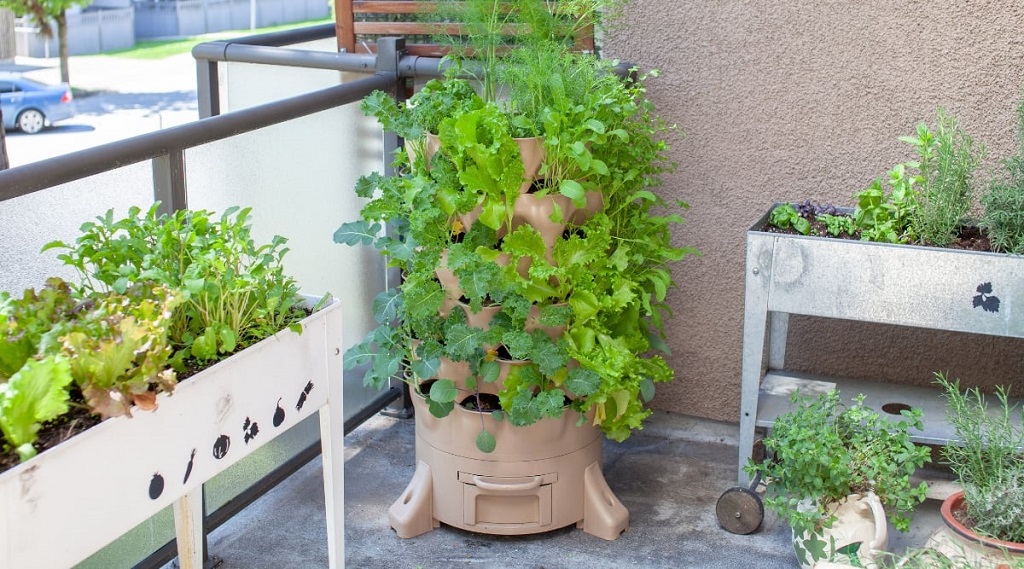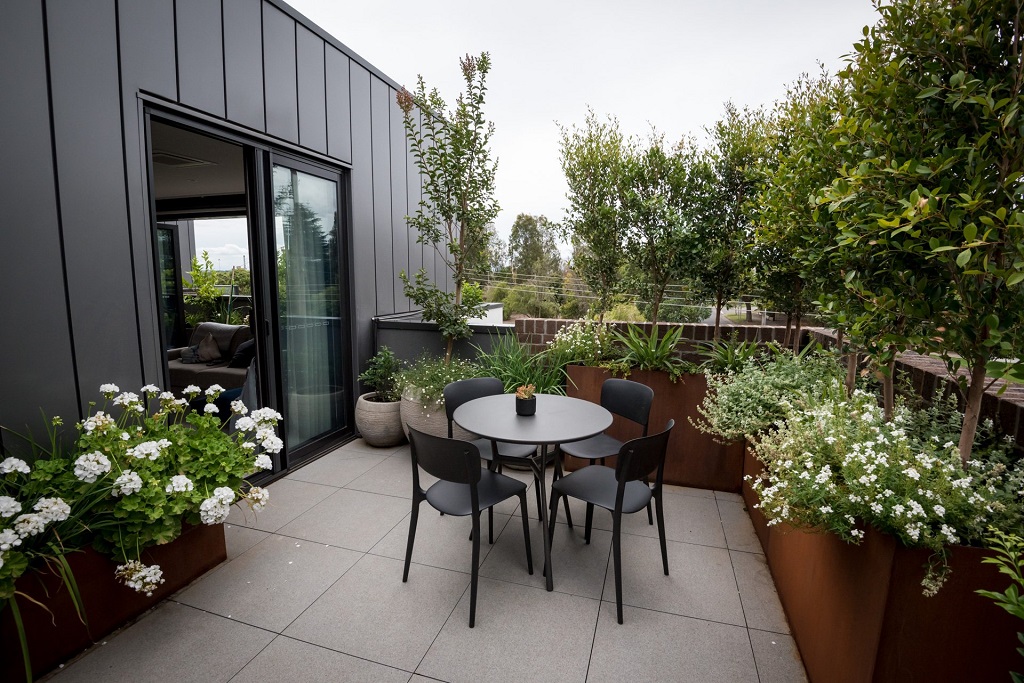
To grow a garden on a balcony, choose plants that thrive in containers and consider the available sunlight and space before selecting the right containers and soil for the plants. Make sure to water the plants regularly and provide appropriate nutrients to support their growth.
Creating a successful garden on a balcony can be a rewarding experience, offering a natural escape in an urban setting and providing a homegrown supply of fruits, vegetables, or flowers. With careful planning and selection of the right plants and containers, even a small balcony can be transformed into a green oasis.
Whether you have a sunny or shady balcony, there are various strategies to make the most of the available space to cultivate a thriving garden. By following some simple guidelines and tips, you can create a beautiful and productive garden that enhances the visual appeal of your balcony while bringing the joy of gardening to your home.
Choosing The Right Plants
When choosing plants for your balcony garden, it’s essential to consider the amount of sunlight your space receives. Some plants thrive in full sun, while others prefer partial or even full shade. Take note of the sun exposure throughout the day to make informed decisions about which plants will suit your specific environment the best.
 Preparing Your Balcony
Preparing Your Balcony
To grow a garden on a balcony, it’s crucial to ensure proper drainage. This can be achieved by placing saucers or trays under pots to collect excess water. Create suitable containers for planting by using lightweight materials like plastic or resin to prevent strain on the balcony’s structure. Consider the size of your balcony, and choose containers that will fit comfortably while leaving enough space to move around. You can also hang planters to maximize the use of vertical space. Additionally, consider the weight of the containers and the soil once they’re watered. Ensure your balcony can support the additional weight. Proper preparation will enable you to enjoy a thriving garden in the limited space of your balcony.
Providing Adequate Watering
Providing adequate watering is crucial for growing a garden on a balcony. To determine the watering needs of your plants, check the soil moisture regularly. Stick your finger into the soil about an inch deep. If it feels dry, it’s time to water. However, if it feels moist, hold off on watering as overwatering can harm the plants. When watering, use proper techniques such as watering at the base of the plants to avoid wetting the leaves. This not only prevents fungal diseases but also ensures that the plants receive the necessary moisture. Remember to water deeply rather than frequently, allowing the water to penetrate the soil and reach the roots. By following these techniques, you can provide adequate watering for your balcony garden.
 Utilizing Vertical Space
Utilizing Vertical Space
Utilizing vertical space is a great way to grow a garden on a balcony. Install hanging baskets to make use of the space above. Hanging baskets are perfect for growing flowers, herbs, and even small vegetables. They can be easily hung on the balcony railings or hooks attached to the wall. Make sure to choose baskets that are suitable for the weight of the plants you want to grow.
Use trellises for climbing plants such as tomatoes, cucumbers, and beans. Trellises provide vertical support and help these plants grow upwards, utilizing the available space efficiently. Install the trellises against a wall or attach them to the balcony railing. Train the plants to climb up the trellis by gently tying them with garden twine. This not only saves space but also allows for better air circulation and sunlight exposure.
Managing Pests And Diseases
Growing a garden on a balcony comes with its fair share of challenges, including managing pests and diseases. Identifying common garden pests is the first step toward effective pest control. Some common pests that may invade your balcony garden include aphids, mealybugs, and spider mites.
Implementing organic pest control methods is both safe for the environment and beneficial for your plants. One effective method is encouraging natural predators like ladybugs and lacewings to help keep pest populations in check. Additionally, you can use insecticidal soaps or DIY sprays made from neem oil or garlic to deter pests
In case your garden faces disease-related issues, it is essential to identify the symptoms and take appropriate action. Common diseases that may affect balcony gardens include fungal infections, such as powdery mildew and leaf spot diseases.
Regularly inspecting your plants and maintaining good hygiene by removing infected leaves can prevent further spread. Applying organic fungicides or using homemade remedies like baking soda solution can help control these diseases.
 Regular Maintenance And Care
Regular Maintenance And Care
Regular maintenance and care are essential for growing a successful garden on a balcony. Pruning and trimming the plants regularly helps promote healthy growth and maintain a neat appearance. This helps control the size of the plants and keeps them from becoming overcrowded. It is important to remove any dead or diseased branches as they can hinder the overall health of the plants.
Fertilizing the plants is another important aspect of balcony garden care. Plants in containers often require more nutrients as they have limited access to natural soil nutrients. Using a balanced fertilizer with the right proportions of nitrogen, phosphorus, and potassium can help promote strong root development and vibrant foliage. Consider using organic fertilizers to minimize harm to the environment.
Enjoying The Fruits Of Your Labor
Growing a garden on your balcony can bring joy and satisfaction. Harvesting your fruits and vegetables is rewarding. Even the process of caring for the plants can bring fulfillment and happiness. You don’t need a large space to create a thriving garden. With proper planning and care, you can grow a variety of plants on your balcony. Herbs, tomatoes, peppers, and even small fruit trees can thrive in containers. Choose plants that are suitable for the size and conditions of your space. By caring for your garden regularly, you can enjoy a continuous supply of fresh, home-grown produce. Even in winter, you can boast the best garden growing your food with pride in limited space.
Frequently Asked Questions On How To Grow A Garden On A Balcony
How Much Sunlight Does A Balcony Garden Need?
A balcony garden needs at least 6 hours of direct sunlight per day for most plants to thrive. Choose plants that are suitable for the amount of sunlight your balcony receives and consider using shade cloth or umbrellas to protect them during the hottest part of the day.
Can I Grow Vegetables In Containers On A Balcony?
Yes, you can grow vegetables in containers on a balcony. Choose compact varieties that don’t require a lot of space, such as cherry tomatoes, lettuce, and herbs. Make sure to use containers with good drainage and provide regular watering and fertilization to help your vegetables grow.
What Type Of Soil Should I Use For A Balcony Garden?
For a balcony garden, it’s best to use a high-quality potting mix that is lightweight, well-draining, and rich in organic matter. Avoid using garden soil, as it can become compacted and hold too much moisture in containers. Potting mixes specifically formulated for container gardening are ideal.
How Often Should I Water My Balcony Garden?
The frequency of watering your balcony garden depends on various factors like the type of plants, weather conditions, and the size of containers. Typically, you should check the soil moisture regularly and water when the top inch of soil feels dry. Avoid overwatering, as it can lead to root rot and other problems.
Creating a vibrant garden on your balcony doesn’t have to be a complicated or tedious task. With a little planning, creativity, and patience, you can transform your outdoor space into a green oasis. What is a botanical garden? explores the concept of curated plant collections and diverse ecosystems. By following the tips and techniques shared throughout this blog post, you’ll be well on your way to growing a thriving garden that brings beauty and joy to your balcony.
So, roll up your sleeves, embrace the challenges, and let your green thumb shine! Happy gardening!
